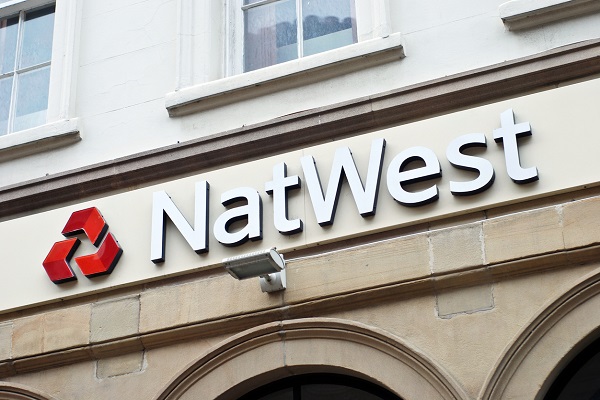NatWest shares slump despite spectacular annual profit
17th February 2023 08:28
by Richard Hunter from interactive investor
Annual results were impressive as rising interest rates fed through to massive profits for the high street bank, but the share price has fallen sharply. Our head of markets runs through the numbers.

NatWest Group (LSE:NWG) finished its year in fine style, buoyed by an embarrassment of riches which further strengthen its financial position.
The current economic backdrop is one to which the bank is suited, being largely exposed to a UK economy where rising interest rates are in force and where bad debts remain low and containable, despite any constraints on the consumer. At the same time, the group’s mortgage growth remains strong, higher trading volumes have made a notable impact and any disappointments from the third quarter update have simply been swept away.
- Invest with ii: Open a Stocks & Shares ISA | ISA Investment Ideas | Transfer a Stocks & Shares ISA
Overall income rose by 25% in 2022 to £13.16 billion, which was slightly ahead of expectations. Pre-tax profit was in line with forecasts, showing an increase of 34% to £5.1 billion. This was achieved despite a hit of £1 billion related to its withdrawal from the Republic of Ireland as well as an impairment charge of £337 million, which compares to a release of £1.3 billion last year. The provision leaves much scope to combat potential customer default and, at the group’s own admission, is towards the end of the most pessimistic scenario, which could augur well in future if this level of bad loans does not materialise.
At the same time, for the most part the key metrics remain in fine shape. Net Interest Margin (NIM) rose to 2.85% from 2.3% the previous year (and was at 3.2% for the fourth quarter), Net Interest Income grew 31% and the Return on Tangible Equity spiked to 12.3% from a previous figure of 9.4%. The balance sheet is typically robust, with a stable capital cushion, or CET1 ratio, of 14.2%, while the Liquidity Coverage Ratio is also well in excess of the required level at 145%.
The group has also been targeting costs, and an overall reduction of 2.9% is in line with its target. Coupled with the bounce in revenues, the cost/income ratio now stands at 55.5%, down from 69.9% last year, with a target for this year of under 52% and then 50% longer term. Indeed, in terms of outlook, NatWest is aiming to build on its strong momentum, with aims for the current year of between 14% and 16% for return on tangible equity, or ROTE, 3.2% NIM and overall income of £14.8 billion.
In the meantime, the boost to profits has also enabled some financial largesse to be bestowed on NatWest’s shareholders. Of particular note is the announcement of a share buyback programme of £800 million, well in excess of an expected number nearer to £730 million, while the dividend has also been increased, leading to a projected ordinary yield of 4.4%, a figure which is turbocharged to 9.9% if the recent special dividend is included.
The remaining government stake of around 46% is something of an overhang for the shares, although the commitment to continue to whittle it down further has already been declared. Indeed, in these circumstances such demands on the bank’s capital are ones which it can comfortably cater for. Elsewhere, the economic outlook in the UK, which could yet deteriorate towards a recessionary environment, would put more pressure on the banks’ customers, for both individuals and companies alike.
- UK bank sector dividends: what to expect from the Big Five
- Barclays disappoints amid significant headwinds
- Analysis: bank sector prospects and outlook for Lloyds shares
Even so, for the moment NatWest is delivering across the board, while also remaining prudent in the use of its excess capital. The share price has reflected improving prospects, having risen by 17% over the last year, as compared to a gain of 6.3% for the wider FTSE100.
A slightly perplexing reaction has hit the shares in early trade, falling over 9% at one stage to prices not seen in over five weeks, perhaps in light of some profit taking after the share price spike of 24% over the last three months, while a weaker market generally is also clouding sentiment.
However, over two years the shares have jumped by almost 60% and the market consensus of the shares as a 'buy' is indicative of the appreciation investors have for the progress the once-beleaguered group is making.
These articles are provided for information purposes only. Occasionally, an opinion about whether to buy or sell a specific investment may be provided by third parties. The content is not intended to be a personal recommendation to buy or sell any financial instrument or product, or to adopt any investment strategy as it is not provided based on an assessment of your investing knowledge and experience, your financial situation or your investment objectives. The value of your investments, and the income derived from them, may go down as well as up. You may not get back all the money that you invest. The investments referred to in this article may not be suitable for all investors, and if in doubt, an investor should seek advice from a qualified investment adviser.
Full performance can be found on the company or index summary page on the interactive investor website. Simply click on the company's or index name highlighted in the article.